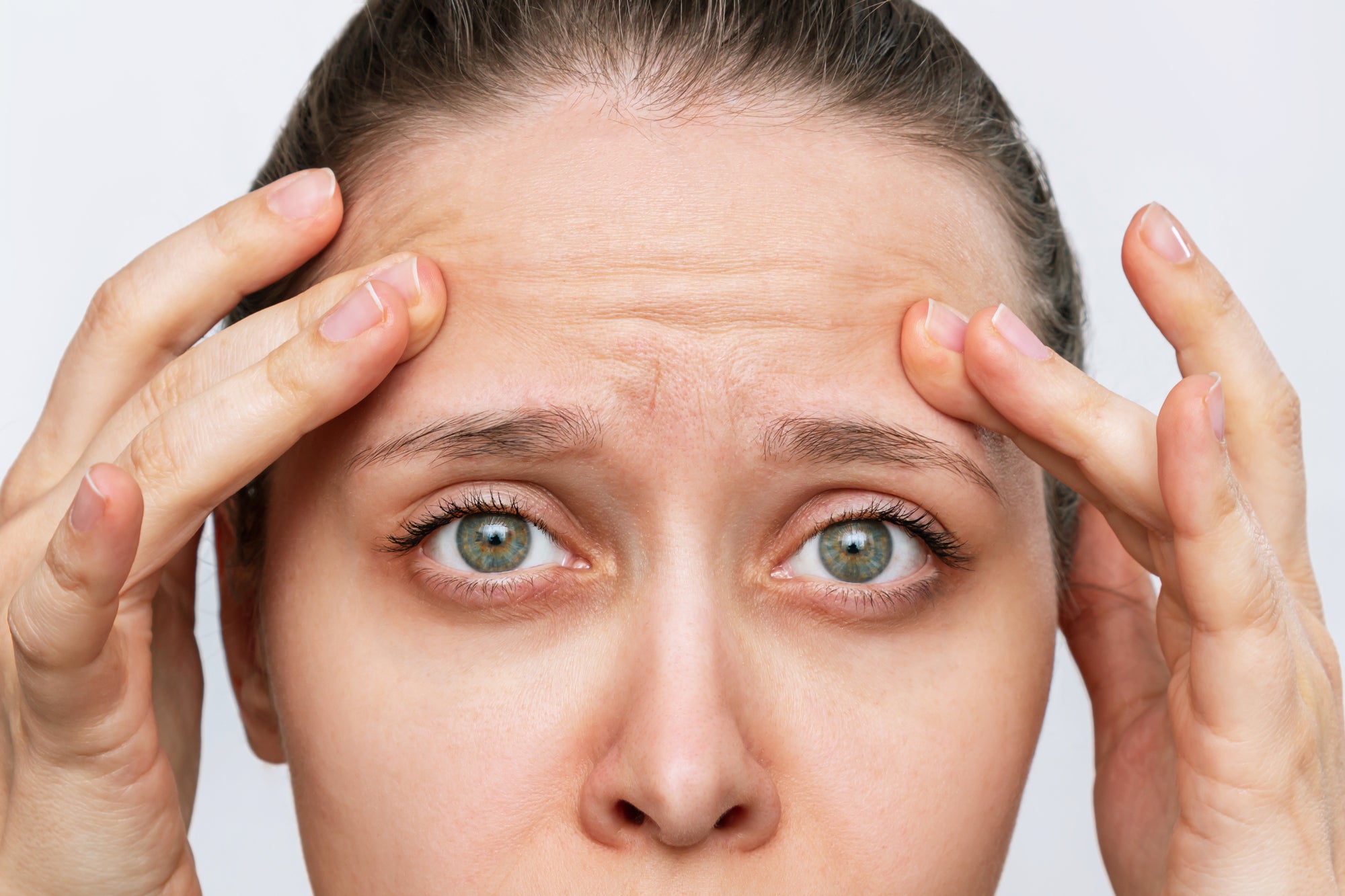Free Shipping Across Malaysia

The skin is the first part to show signs of aging. Healthy age-related skin changes are inevitable. Although everyone ages differently, skin aging usually involves the appearance of fine lines and wrinkles, loss of elasticity, rough texture, and discoloration. Many skin care products that contain active ingredients may help slow the signs of aging.
Although the natural aging process is a little different for everyone, the first signs of skin aging tend to appear in our 30s and 40s. Collagen and elastin in the skin break down, making it less elastic and more prone to wrinkles. It needs it to maintain its elasticity and moisture levels – which leads to visible skin aging. Exposure to ultraviolet light and certain lifestyle habits, such as smoking and drinking alcohol, increase collagen breakdown. People who use repetitive facial expressions, such as squinting or frowning, notice the appearance of wrinkles. Standing around the eyes or on the forehead.
Prevention is the key to reducing wrinkles.
The most important thing is to take care of your skin before all these changes start to happen. Good skin care habits should start at a young age. Even children should learn how to take care of their skin, including cleansing and moisturizing their skin, in addition to sunscreen before going out in the sun to help protect your skin from the Ultraviolet ray. Where the sun emits UVA and UVB rays, where UVA causing aging, while UVB causing burning.
There are plenty of anti-aging skin care products out there to help prevent or delay these blemishes.
Moisturizing: Hydrated skin is a clue to healthy skin. If you have dry skin, use a hydrating moisturizer, cream or lotion at least twice a day. Contains hyaluronic acid to help retain the skin's natural moisture. Moisturizing alone will improve the appearance of your skin. Temporarily plumps the skin, making lines and wrinkles less visible.
Vitamin C: is a powerful antioxidant, which means it protects the skin from free radicals - unstable oxygen molecules that break down skin cells and cause wrinkles. Vitamin C may help protect the skin from sun damage and reduce fine lines and wrinkles. It is a co-factor in collagen formation; therefore, it can help increase collagen production and will help your skin plump and reduce the appearance of wrinkles. And it helps to clearly lighten the skin and enhance the skin tone. Wrinkle creams containing vitamin C must be stored in a way that protects them from air and sunlight.
Retinol: is a nutrient that works as an exfoliator. It will help slough off old skin cells, replacing them with newer, healthier, more lustrous skin cells. It works to clarify skin while improving the appearance of fine lines, wrinkles, rough texture, and radiance by slowing the breakdown of collagen. These ingredients have also been used topically to help repair sun-damaged skin.
Peptides: are small proteins that have many benefits including improving the appearance of tired skin. Certain peptides are able to stimulate collagen production, and have been shown to improve skin texture, wrinkles, and wound healing.
Alpha hydroxy acid (AHA): Alpha hydroxy acids (AHAs) include glycolic, citric, and lactic acid. Used to remove dead skin cells (exfoliation). Regular use of an AHA product prepares your skin to better absorb other products and stimulates the growth of new, smooth, evenly pigmented skin.
Facials provide your skin with nutrients, which help keep it healthy. Chemical peels, another type of skin care treatment, promote overall cell turnover, help smooth the skin's surface and reduce lines and wrinkles.
Some of the most important tips to protect your skin:
- Eat a balanced diet.
- Regular sleep.
- Drink enough water.
- Away from stress (causing fine lines and wrinkles).